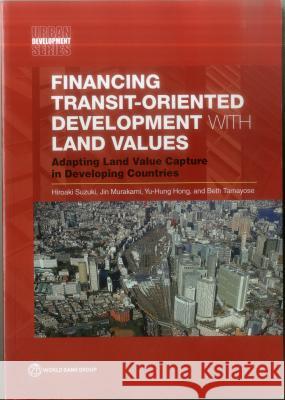Financing Transit-Oriented Development with Land Values » książka
Financing Transit-Oriented Development with Land Values
ISBN-13: 9781464801495 / Angielski / Miękka / 2015 / 208 str.
Cities in developing countries are experiencing unprecedented urban growth. Unfortunately, this is often accompanied by the negative impacts of sprawl as a result of rapid motorization such as congestion, air pollution, greenhouse gas emissions, inefficient use of energy and time, and unequal accessibility. As these cities are often under severe fiscal constraints, they face great challenges in financing capital-intensive mass transit systems to reverse the course of these negative trends. Development-based land value capture (DBLVC) financing schemes being practiced in Asian megacities like Hong Kong SAR, China, and Tokyo have helped them not only to generate funds for transit investment and operational and maintenance costs but also to promote sustainable urban development through transit-oriented development (TOD). Many rapidly growing cities in developing countries have the conditions for introducing DBLVC - namely, strong economic growth, rising real incomes and increased motorization and congestion levels - all of which cause land value appreciation within proximity of transit stations or corridors. If adapted well to local contexts, DBLVC schemes have great potential to become an important strategic apparatus of urban finance and planning for cities in developing countries. Through a careful analysis of various case studies, this book provides strategies, policies, and methodologies that policy makers and practitioners can apply in developing their own DBLVC schemes for transit financing.











